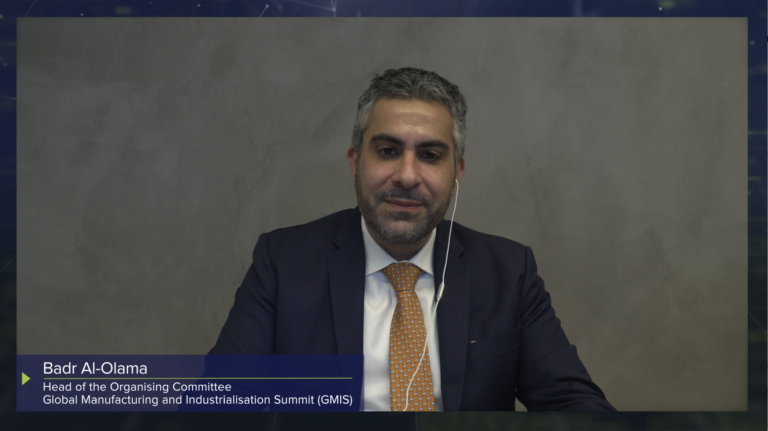Companies that have embraced digital technologies will be seeing an exceptional ROI amid the disruption caused by the current crisis, according to the head of the Global Manufacturing and Industrialisation Summit, Badr Al-Olama, speaking at this week’s Hannover Messe Digital Days event. Subjects included industrial transformation including Industrie 4.0, artificial intelligence, 5G,and smart logistics.
“I believe the ones that will surf are those that have already embraced the fourth industrial revolution,” saidAl-Olama. “For companies that invested before Covid-19, ROI is shooting through the roof and those companies are surfing and enjoying every moment. The wave has been perfect for them.”
Speaking at a session titled ‘Re-imagining the future through digital restoration’, Al-Olama stressed that resilience, flexibility, and sustainability are the three most important factors for any manufacturer, all of which can be enhanced by harnessing the technologies of the fourth industrial revolution. By embracing technology to strengthen global value chains, localise capabilities, and maintain operations, manufacturers would have a “winning formula” to manage output, meet demand, control costs, and improve quality, he added.
Al-Olama urged companies to stop yearning for things to return to the way they were before the pandemic and instead focus on preparing for inevitable changes that would provide them with a new benchmark for the future.
“The world must accept that there is a new normal coming which will look considerably different from pre-COVID times, and this will include hybrid models of digital technology with physical activity. Countries and businesses that are able to predict and react to the new normal are going to be the real winners at the end of the game,” he said.
Industry and technology companies are working hand-in-hand to speed up the recovery from the pandemic and create an economy immune from potential disruptions in the future, Al-Olama said. He pointed out that COVID-19 has resulted in global collaboration on an unprecedented scale, with manufacturers repurposing their factory floors to produce essential Personal Protective Equipment (PPE), and COVID-19 researchers openly sharing their findings with the rest of the world.
“Research has been made open source because humanity is collaborating to make sure that we can mitigate the impact of COVID-19,” he said. More importantly, he added, start-up ecosystems have stepped up and are driving entrepreneurs and SMEs to produce innovative solutions that can enable businesses to swiftly recover from the crisis.
There is a collective responsibility to address inequalities around the world, including the digital divide that exists between developed and developing countries, Al-Olama said. As long as only 20% of the population of Least Developed Countries (LDCs) have access to the internet, compared to 90% in the developed world, it will be impossible to achieve inclusive and sustainable industrial development at a global level, because reliable connectivity underpins the technologies of the fourth industrial revolution.
Addressing this would require a paradigm shift towards “collaborative management” between stakeholders, he said. “We need to promote inclusive and sustainable industrial development, not just because it’s part of the Sustainable Development Goals (SDGs), but because we should have the decency to take care of everyone, everywhere. If all economies are in good shape, then the global economy will be much more resilient, flexible, and sustainable.”
Private sector companies, rather than governments, should take the lead and accelerate the next evolution of digital capabilities, while governments should focus on providing the right policies and framework for the private sector to bridge the digital revolution and emerging global crises such as climate change. “That to me is a true partnership between the public sector and the private sector for the benefit of civil society,” Al-Olama said.





